Introduction to Argentine Breakfast Culture
Argentina’s breakfast rituals reflect its rich history, European influences, and local ingenuity. Mornings across the country begin with a gentle pace, where the aromas of fresh coffee, sweet pastries, and warm breads fill both homes and bustling cafés. The atmosphere is often relaxed, with friends, families, and colleagues gathering to share a simple yet satisfying meal before the day begins.
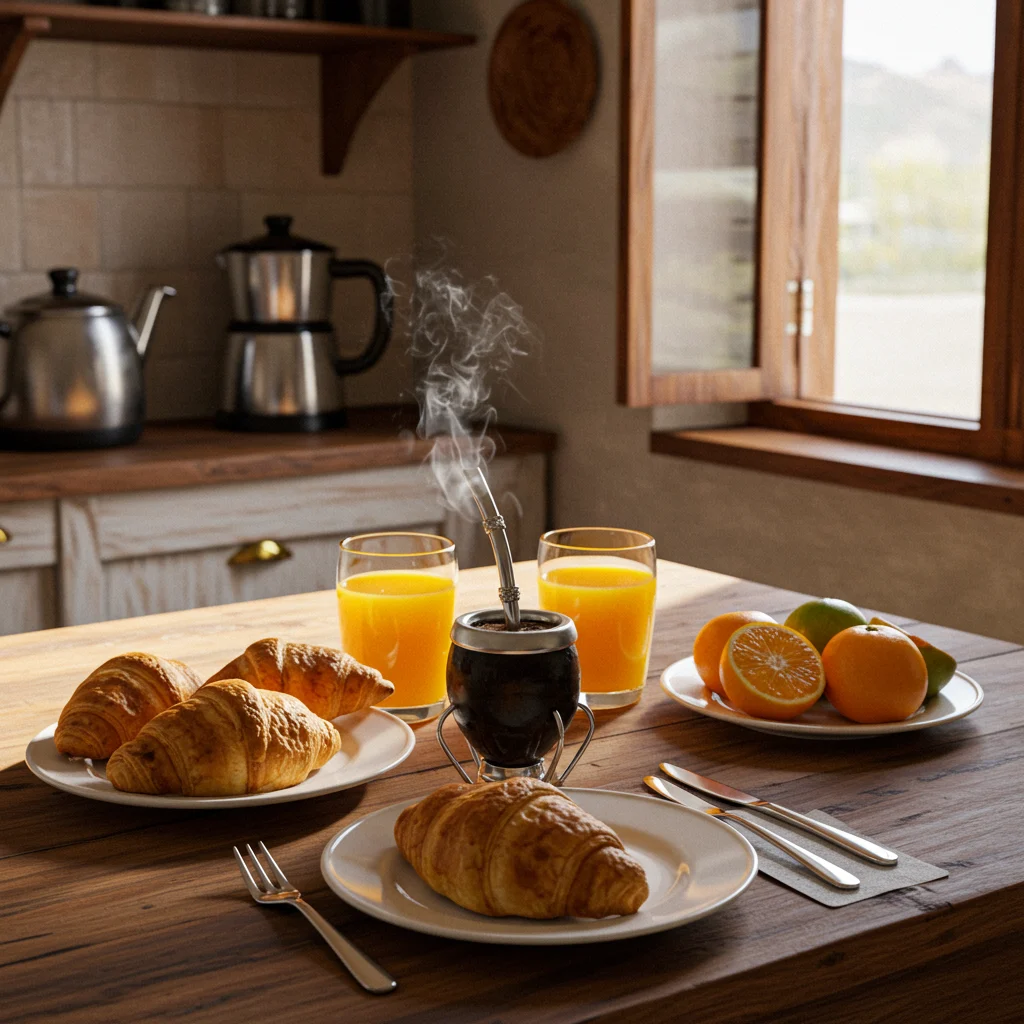
Unlike the elaborate breakfasts found in some cultures, Argentine breakfasts are typically light, emphasizing quality ingredients and a sense of community. This approach to the morning meal highlights the country’s appreciation for tradition and genuine connection.
What Defines a Traditional Argentine Breakfast?
At its core, a traditional Argentine breakfast centers around pastries, bread, and hot beverages. Sweet flavors dominate, with options like medialunas (croissants), facturas (pastries), and dulce de leche (caramel spread) featured prominently. Savory choices, while less common, are still appreciated in some regions and households.
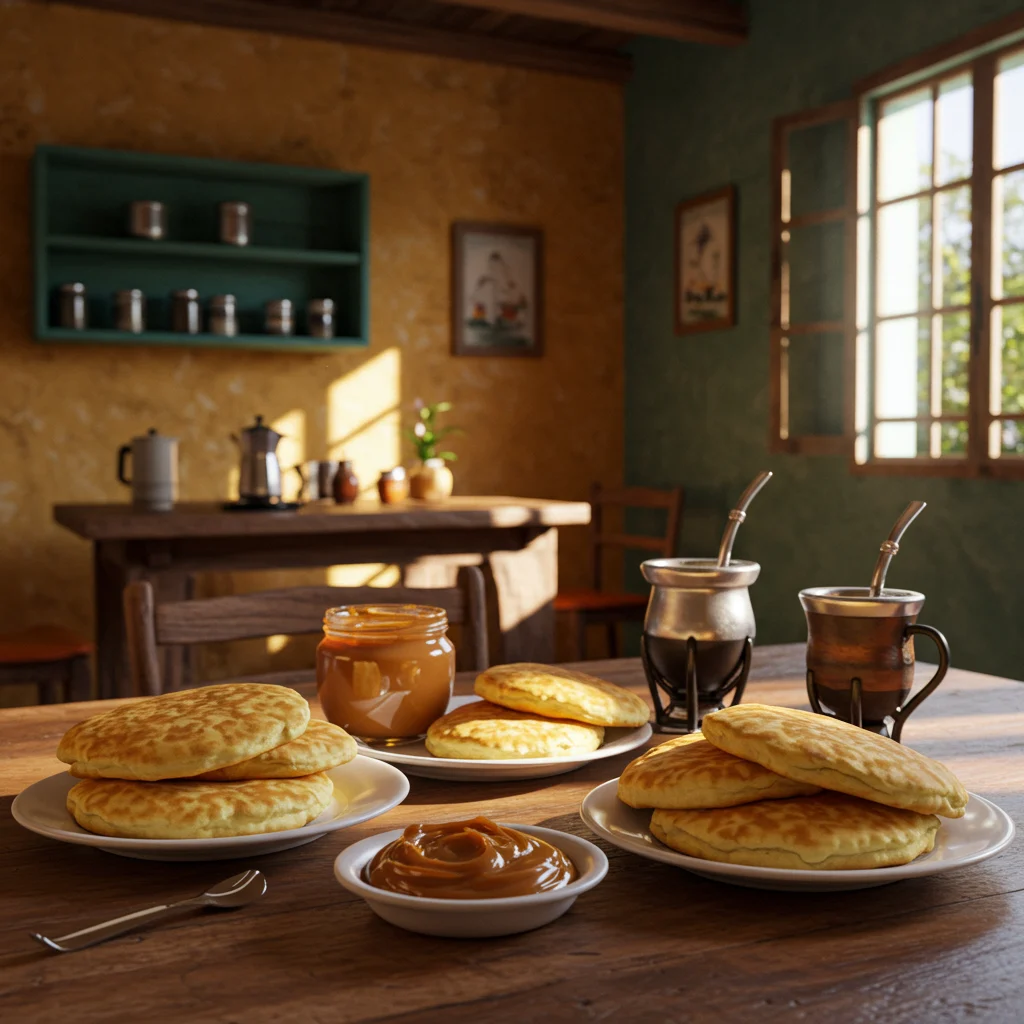
The simplicity of the Argentine breakfast is intentional, providing energy without overwhelming the senses. This meal is less about variety and more about savoring familiar flavors, often enjoyed with company or during a quiet moment to oneself.
How Breakfast Fits into Daily Life in Argentina
Breakfast in Argentina is often a quick yet meaningful ritual. Many Argentines eat at home, while others visit their neighborhood panadería or café for a pastry and coffee. The meal is typically lighter than lunch or dinner, fitting seamlessly into the country’s daily rhythm.
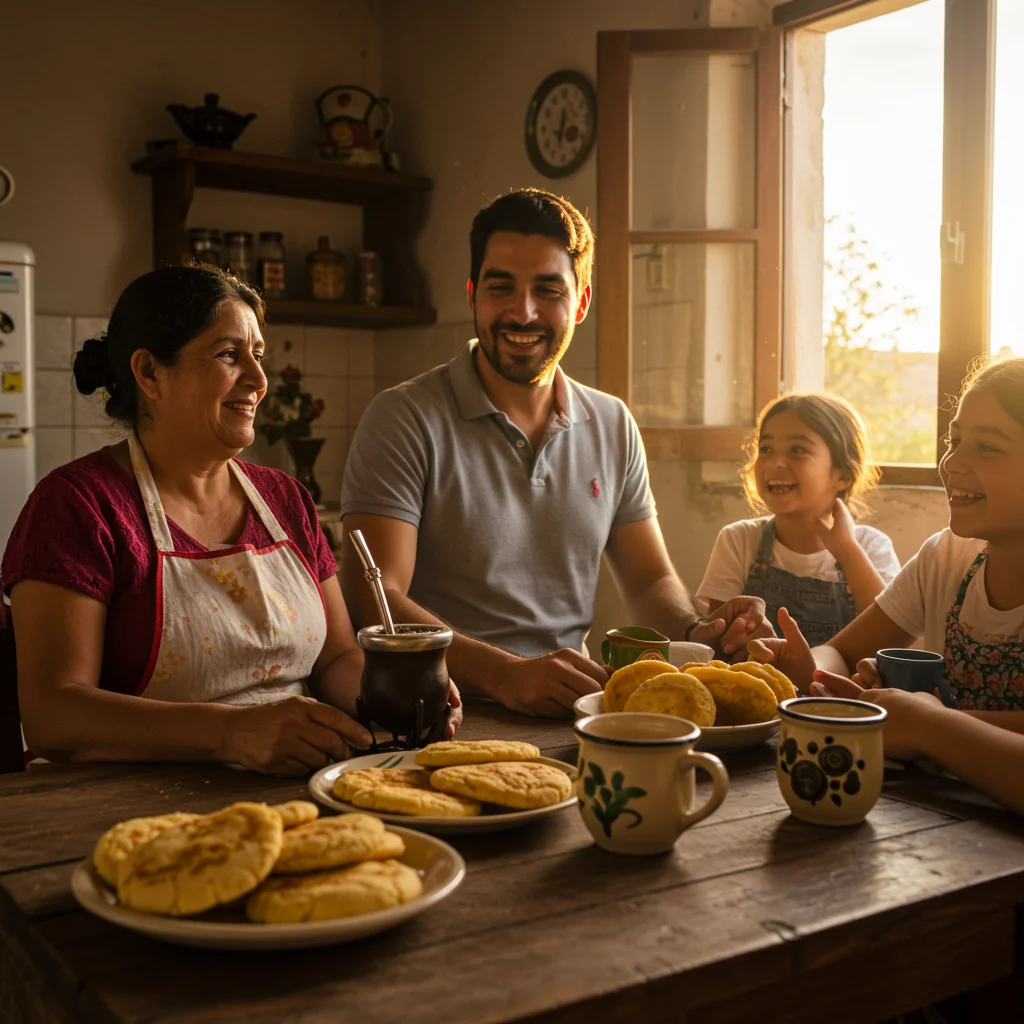
Workdays tend to start later than in some other countries, allowing for a leisurely start and time to enjoy a favorite pastry or hot drink. On weekends, the breakfast table may become a gathering spot for extended family, blending conversation with the enjoyment of local specialties.
Regional Variations in Argentine Breakfasts
Argentina’s vast geography gives rise to subtle regional differences in breakfast foods. In Buenos Aires, European-style bakeries offer a dazzling array of pastries, while the north-eastern provinces feature cheese breads like chipa. The Andean northwest favors heartier options, sometimes including maize-based dishes or local cheeses.
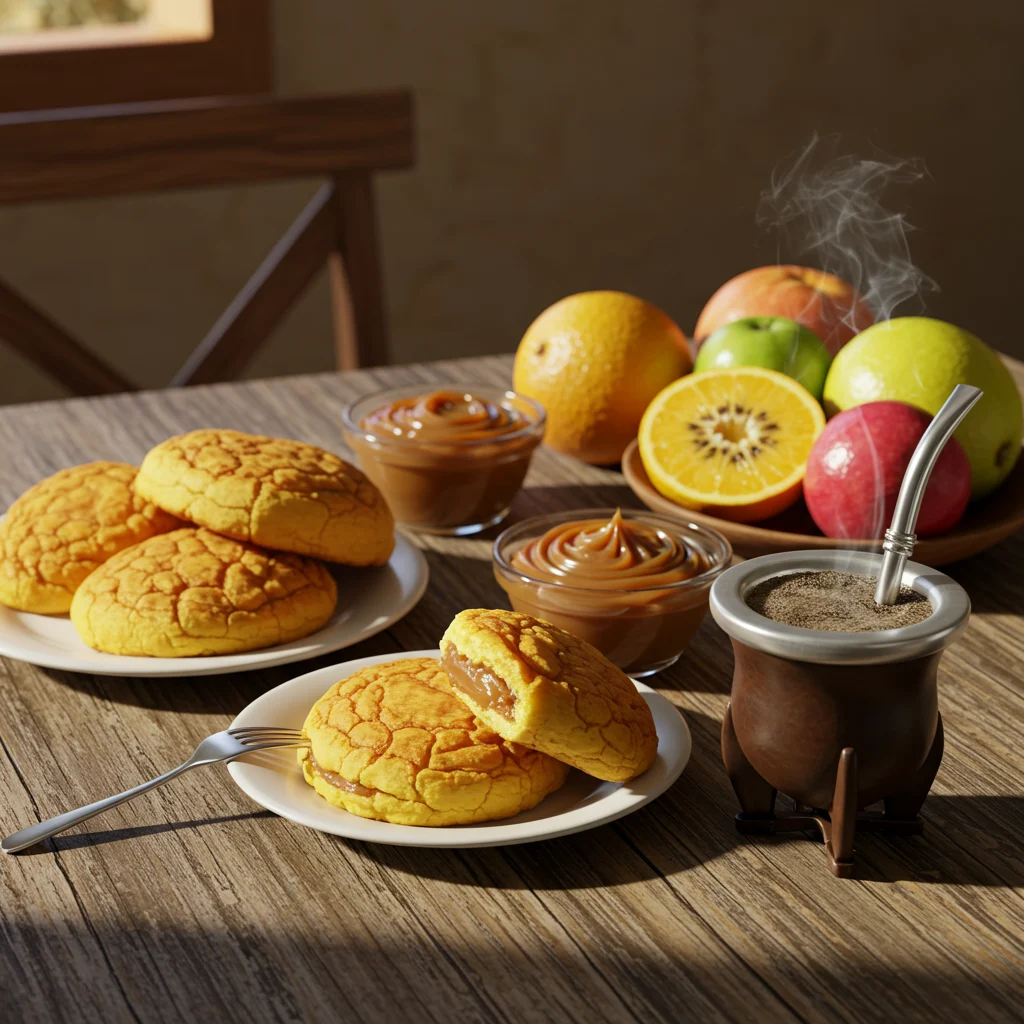
Travelers who appreciate culinary diversity will find that each region’s breakfast table tells a story, much like the unique flavors found on a Paris walking food tour.
The Role of Bakeries (Panaderías) in Argentina
Panaderías are the heart of Argentina’s breakfast culture. These bakeries open early, drawing locals with the scent of freshly baked medialunas, facturas, and bread. Many Argentines stop by their favorite panadería on the way to work or school, often forming a friendly rapport with the staff.
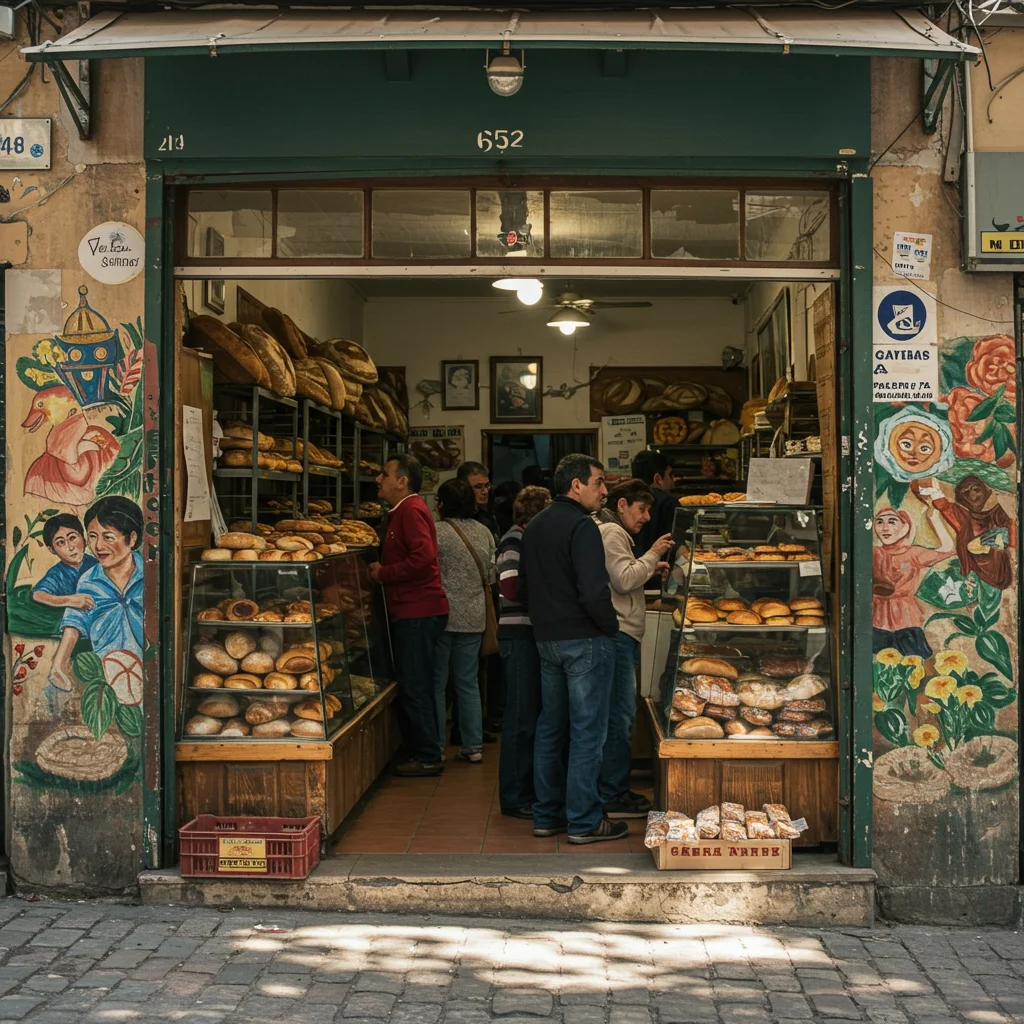
Bakeries are more than just places to buy food—they are social hubs where neighbors meet and traditions are passed down. The variety and quality of pastries available reflect the nation’s deep-rooted appreciation for artisanal baking.
Essential Ingredients in Argentine Breakfasts
The foundation of Argentine breakfast dishes lies in a few key ingredients. Wheat flour, butter, eggs, and sugar form the backbone of most pastries and breads. Cheese appears in regional specialties like chipa, while dulce de leche is used generously across sweet offerings.
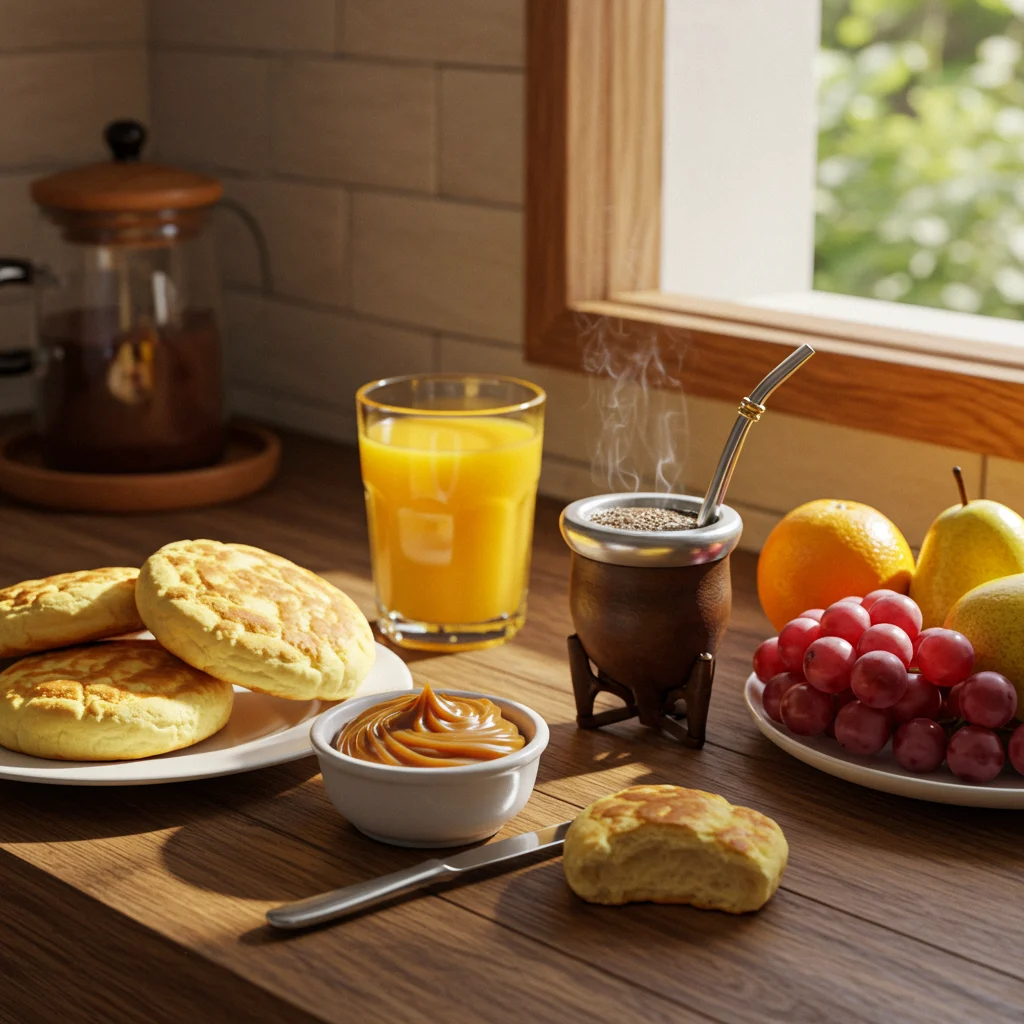
Local dairy products, high-quality coffee, and flavorful jams also play important roles, adding richness and variety to the breakfast spread.
Classic Argentine Beverages to Start the Day
Beverages are central to the Argentine breakfast experience. Coffee, yerba mate, and hot chocolate each have their place at the morning table, offering warmth and comfort alongside sweet and savory foods.
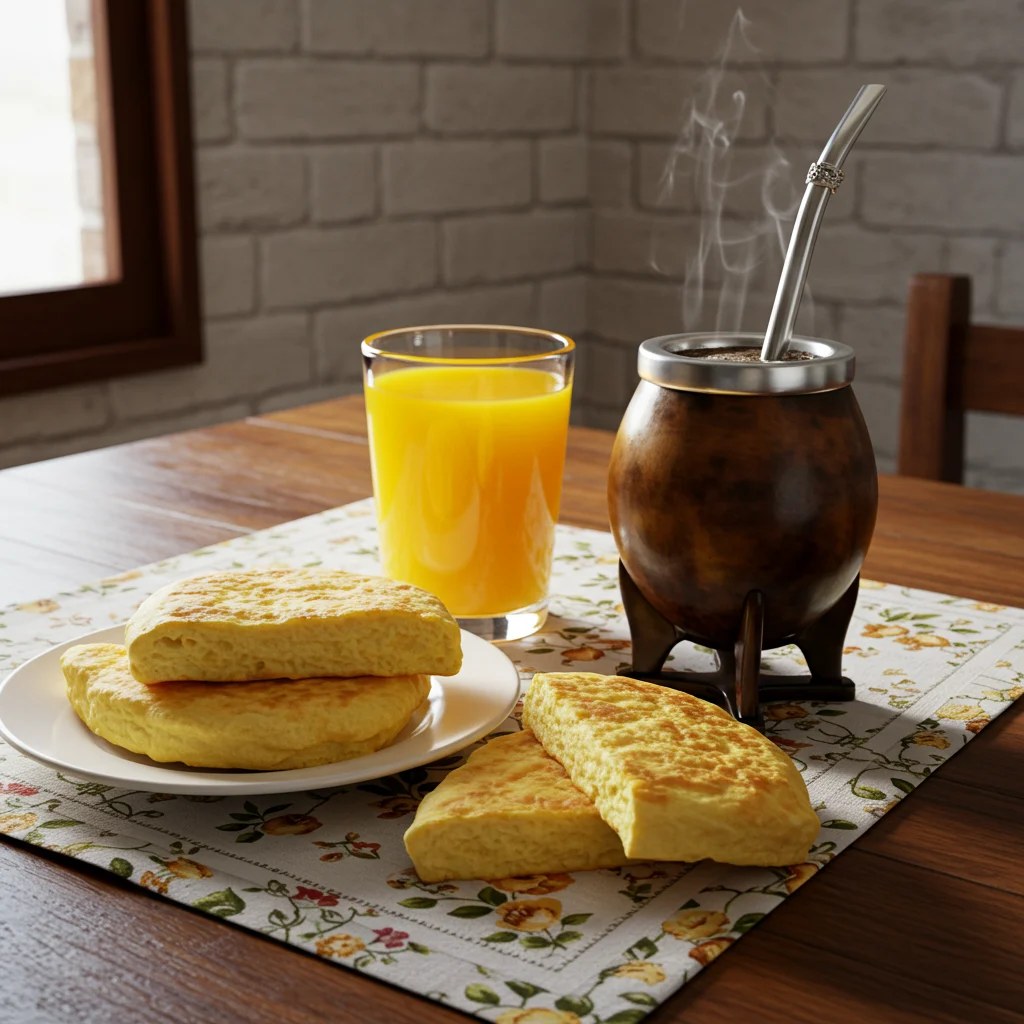
Why Is Coffee So Popular in Argentina?
Coffee enjoys a special status in Argentina, with a café culture reminiscent of European capitals. Most Argentines prefer their coffee strong and served with steamed milk, known as café con leche. The ritual of enjoying coffee, whether at home or in a bustling café, is an integral part of daily life.
It’s common to see people lingering over their morning cup, reading the newspaper or chatting with friends before heading to work.
Yerba Mate: Argentina’s Iconic Morning Drink
Yerba mate is more than just a beverage—it’s a national symbol and a cherished tradition. This herbal infusion, made from the dried leaves of the yerba mate plant, is enjoyed throughout the day but holds a special place in the morning routine. Sharing mate is a communal act, with friends or family passing the gourd from hand to hand.
How to Prepare and Enjoy Yerba Mate
Preparing mate involves filling a hollowed gourd with yerba leaves, adding hot (but not boiling) water, and sipping through a metal straw called a bombilla. The taste is earthy, slightly bitter, and deeply invigorating. Many Argentines add sugar or herbs to suit their preferences.
As experts often say:
“Sharing mate is more than drinking tea; it’s a ritual of friendship, trust, and Argentine identity.”
Enjoying mate is a way to connect with others and honor a tradition that stretches back generations.
Other Popular Hot Drinks: Tea, Submarino, and More
Tea is a popular alternative to coffee and mate, especially among those seeking a milder start to the day. Another beloved option is submarino, a treat where a bar of dark chocolate is melted into a glass of hot milk, creating a rich and comforting drink. Children and adults alike enjoy this sweet ritual, especially during colder months.
Facturas: Argentina’s Beloved Pastries
Few things define Argentine breakfasts as vividly as facturas. These pastries, available in an incredible array of shapes and flavors, are a morning staple in homes and cafés alike. Their buttery aroma and inviting appearance tempt even the busiest commuter to pause for a taste.
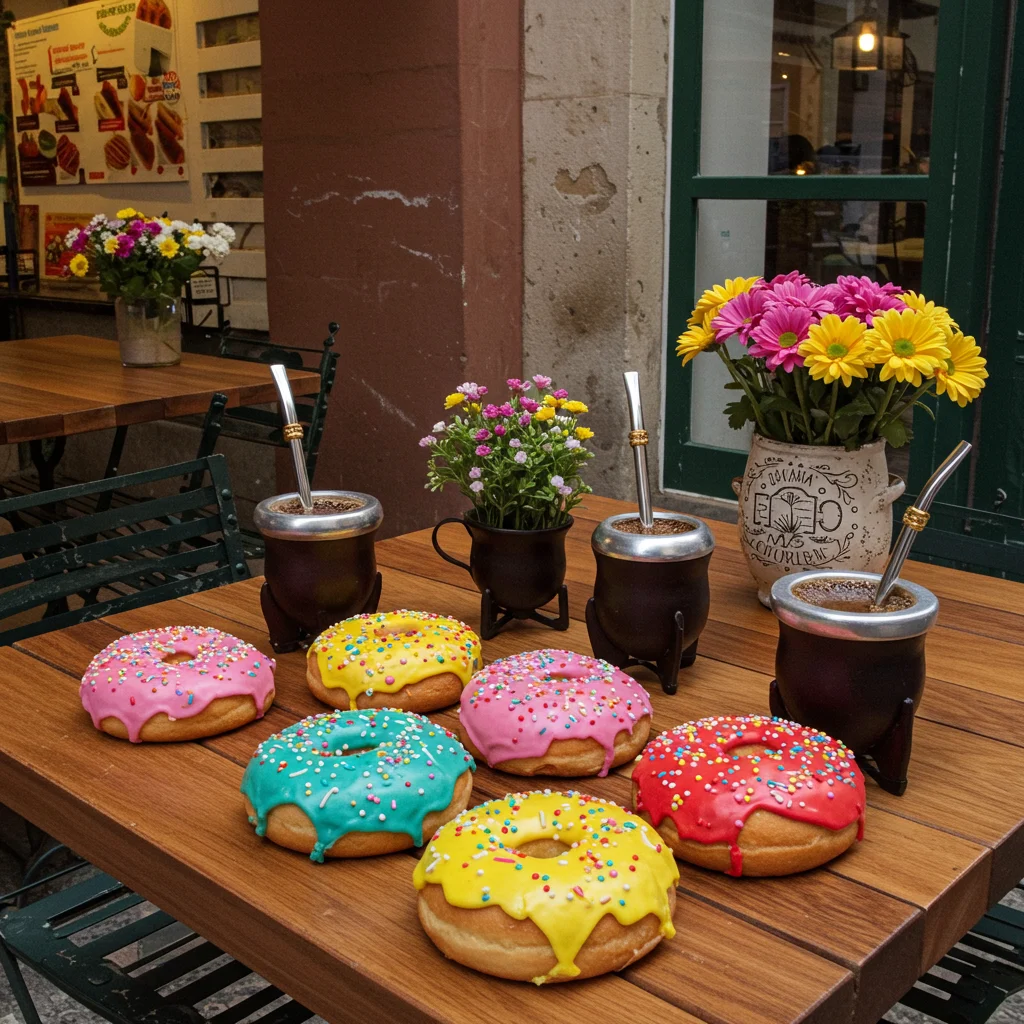
What Are Facturas?
Facturas are sweet or lightly savory pastries, often topped or filled with custard, dulce de leche, or fruit jams. Their origins reflect the influence of European immigrants, especially from Italy and France, who brought their baking traditions to Argentina.
Types of Facturas You Must Try
The facturas family includes a dazzling variety of treats. Some of the most popular types are:
- Medialunas (croissant-style rolls)
- Vigilantes (simple sticks glazed with sugar)
- Tortitas negras (biscuits topped with black sugar)
- Bolas de fraile (jam- or cream-filled doughnuts)
- Churros (fried dough, sometimes filled with dulce de leche)
Each offers a unique texture and flavor, making it easy to find a personal favorite.
Medialunas: The Argentine Croissant
Medialunas are perhaps the most iconic of all Argentine pastries. Their crescent shape and glossy, golden exterior make them instantly recognizable. Soft, slightly sweet, and delicately layered, medialunas are enjoyed plain or with a touch of jam or butter.
Medialunas de Manteca vs. Medialunas de Grasa
There are two main types of medialunas: de manteca (made with butter) and de grasa (made with lard). Medialunas de manteca are rich, tender, and sweet, often preferred with coffee. Medialunas de grasa, on the other hand, are flakier and less sweet, with a subtle savory note that pairs well with mate.
How Are Medialunas Made?
Making medialunas involves carefully layering dough with butter or lard, rolling and folding it multiple times to create the signature flakiness. The dough is shaped into crescents, brushed with syrup for shine, and baked until golden. The result is a pastry that’s both airy and satisfying.
Vigilantes: Sweet and Simple Morning Treats
Vigilantes are long, slender pastries glazed with sugar. Their simplicity makes them a popular choice for those who prefer a lighter, less buttery option. Vigilantes are perfect for dipping into coffee, soaking up just enough sweetness to balance the bitter notes of the drink.
Tortitas Negras: The Black Sugar Pastry
Tortitas negras are round biscuits topped with a generous layer of dark brown sugar. The contrast between the crisp biscuit and the caramelized sugar creates a delightful texture and flavor. These pastries are especially popular with children and often appear at family gatherings.
Bolas de Fraile: Argentina’s Filled Doughnuts
Bolas de fraile, sometimes called berlinesas, are deep-fried doughnuts filled with dulce de leche or pastry cream and dusted with sugar. Their soft, pillowy texture and decadent filling make them a favorite indulgence, whether for breakfast or an afternoon snack.
Churros: Not Just for Dessert
While churros may be associated with fairs or late-night treats in other countries, in Argentina they are also enjoyed at breakfast, especially when dipped in hot chocolate or filled with dulce de leche.
How Are Argentine Churros Different?
Argentine churros are typically shorter and thicker than their Spanish counterparts, with a crisp exterior and a tender, airy interior. The addition of sweet fillings sets them apart, making them a beloved part of the breakfast table.
Dulce de Leche: The Sweet Heart of Breakfast
No discussion of Argentine breakfast would be complete without mentioning dulce de leche. This silky caramel spread is a cornerstone of the country’s culinary identity, used to sweeten pastries, toast, and even coffee.

How Is Dulce de Leche Used at Breakfast?
Dulce de leche appears in countless breakfast dishes. It’s spread on toast, swirled into yogurt, layered in pastries, or simply enjoyed by the spoonful. Its rich, creamy texture and deep caramel flavor make it irresistible at any hour.
Popular Breakfast Dishes Featuring Dulce de Leche
Many of Argentina’s most beloved breakfast items feature dulce de leche as a filling or topping. Medialunas, bolas de fraile, and churros are just a few examples. Even pancakes, known as panqueques, often receive a generous drizzle of this sweet treat.
Tostadas: Argentina’s Take on Toast
Tostadas, or toasted slices of French-style bread, are a breakfast staple in many Argentine homes. Crispy and golden, they provide the perfect base for a variety of toppings, both sweet and savory.
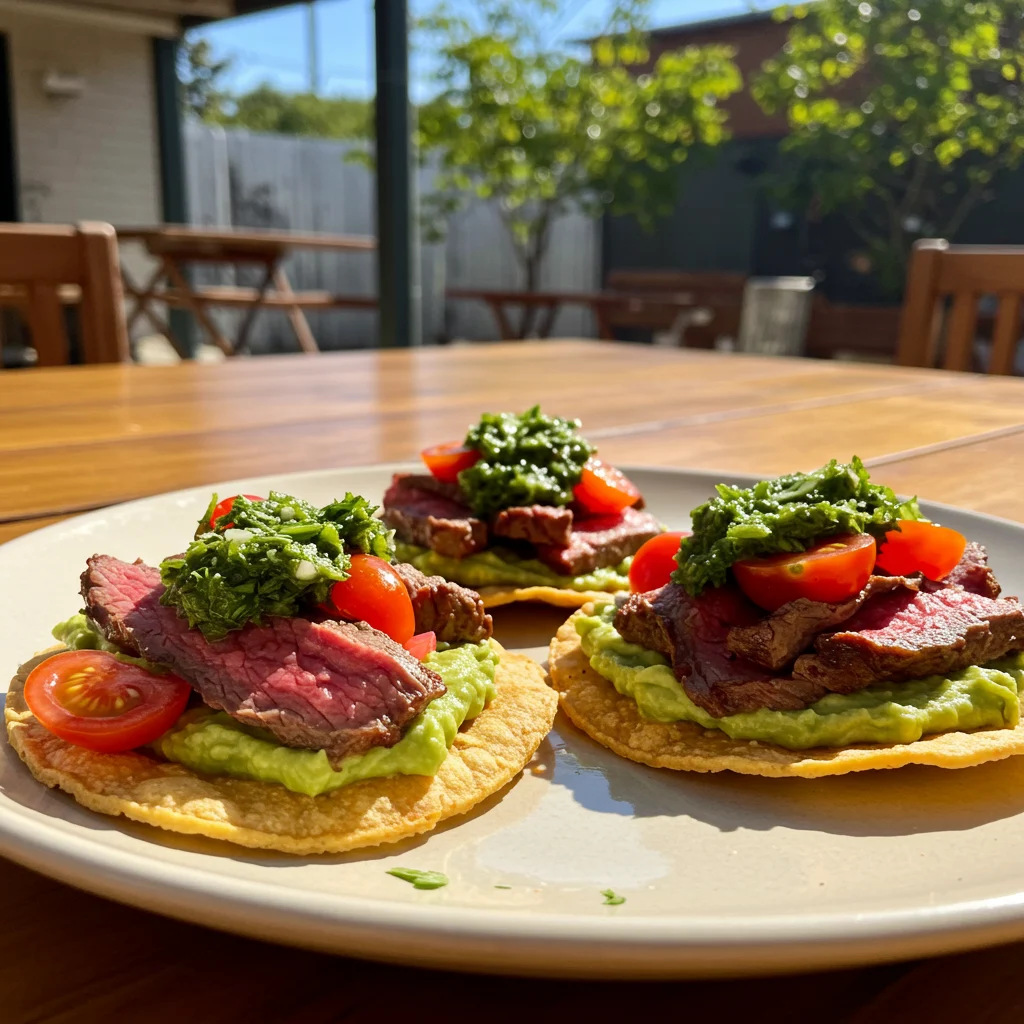
How Are Tostadas Served?
Tostadas are typically served in a basket, sometimes with a selection of jams, butter, and spreads. They may be enjoyed on their own or as part of a larger breakfast spread, offering a simple and satisfying start to the day.
Common Toppings for Tostadas
Popular toppings for tostadas include butter, fruit preserves, and, of course, dulce de leche. Some prefer savory options like cheese or thinly sliced ham, especially when looking for a more substantial meal. The versatility of tostadas makes them a favorite among all ages.
Chipa: The Cheesy Bread of the Northeast
Originating in the provinces bordering Paraguay and Brazil, chipa is a beloved breakfast bread made with cassava flour and cheese. Its distinctive chewy texture and cheesy aroma make it a regional specialty worth seeking out.
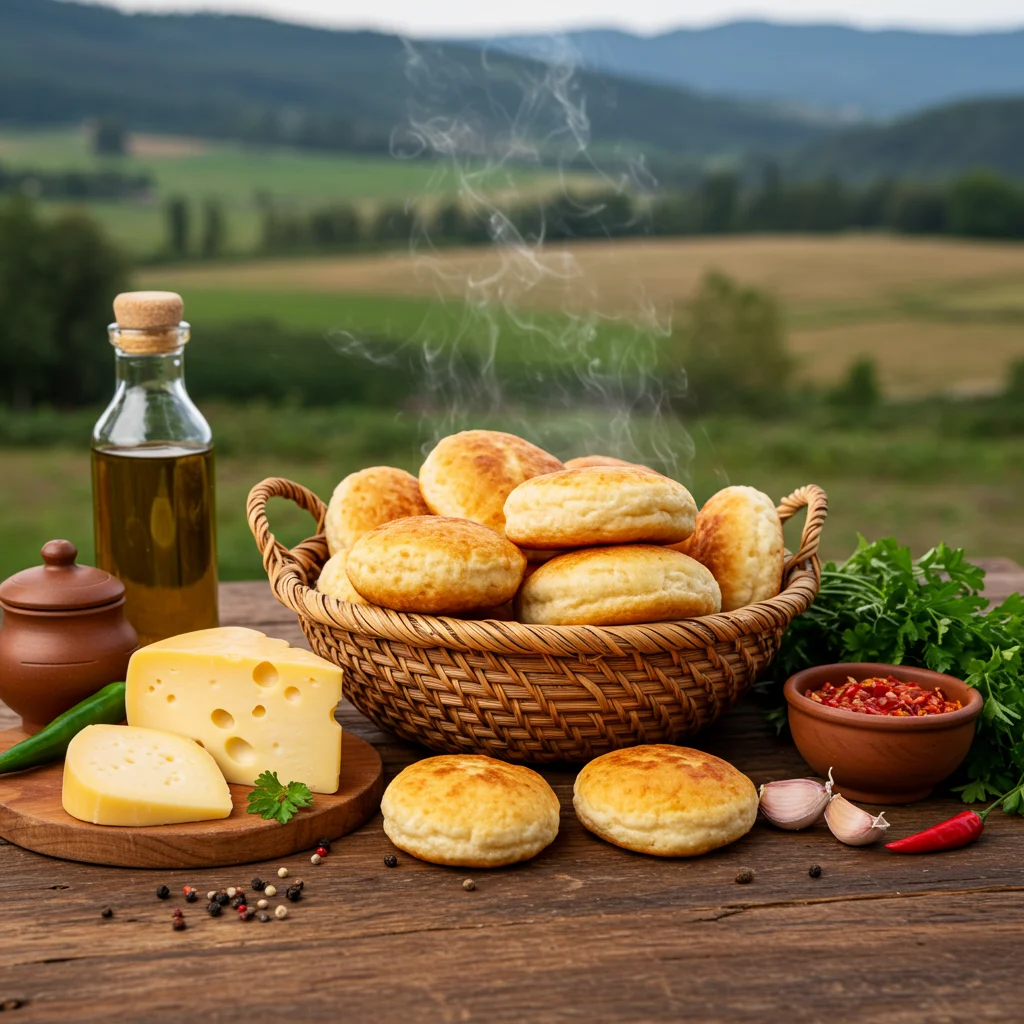
Origins and Variations of Chipa
Chipa has indigenous roots and is especially popular in Misiones and Corrientes. Variations may include different cheeses or the addition of herbs, but all share the characteristic dense, chewy crumb. Chipa is often enjoyed warm from the oven, paired with mate for a satisfying morning bite.
How to Make Chipa at Home
Making chipa is straightforward, requiring cassava flour, cheese, eggs, and butter. The dough is shaped into small rings or balls and baked until golden. For those interested in international breads and pastries, this process may remind you of the donut-making traditions explored in our Dublin food tour.
Tortas Fritas: Fried Breakfast Delights
Tortas fritas are a comfort food favorite, especially on rainy days or during family gatherings. These fried dough discs, sometimes sprinkled with sugar, are warm, crisp, and satisfying—perfect with mate or coffee.
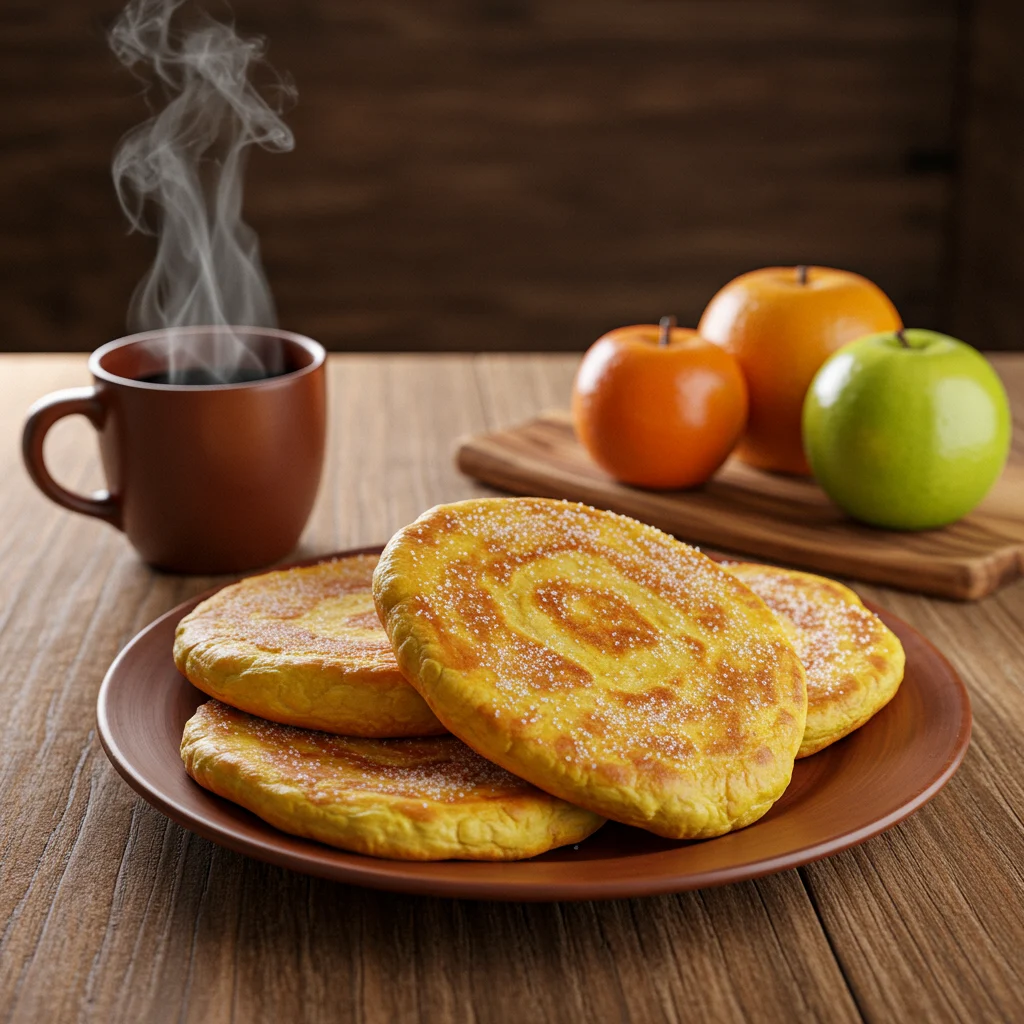
When Are Tortas Fritas Eaten?
Tortas fritas are most commonly enjoyed during cool or wet weather, when their warmth and simplicity bring comfort. They are often made in large batches, inviting everyone to the table for a shared treat.
Tortas Fritas Recipe and Serving Suggestions
The dough for tortas fritas is made with flour, water, and fat (usually lard or butter). After rolling and cutting, the discs are fried until puffed and golden. Serve them warm, dusted with sugar or spread with jam, for a truly Argentine breakfast experience.
Bizcochos: Savory and Sweet Biscuits
Bizcochos are small, crisp biscuits that come in both savory and sweet varieties. They are a staple at breakfast tables across Argentina, often paired with mate or tea.

Types of Bizcochos Commonly Eaten
The selection of bizcochos includes:
- Salty crackers (bizcochitos de grasa)
- Sweet biscuits dusted with sugar
- Miniature pastries topped with seeds or herbs
Each type offers a unique texture and flavor, making them a versatile addition to the morning meal.
Pairing Bizcochos with Argentine Beverages
Bizcochos are often served alongside mate or coffee, their crispness providing a satisfying contrast to the warmth of the drink. Guests may dip them or enjoy them plain, savoring the interplay of flavors and textures.
Breakfast Sandwiches in Argentina
While sweet pastries dominate, breakfast sandwiches also have a place at the Argentine table. These sandwiches are typically simple, featuring high-quality bread and a few select ingredients.
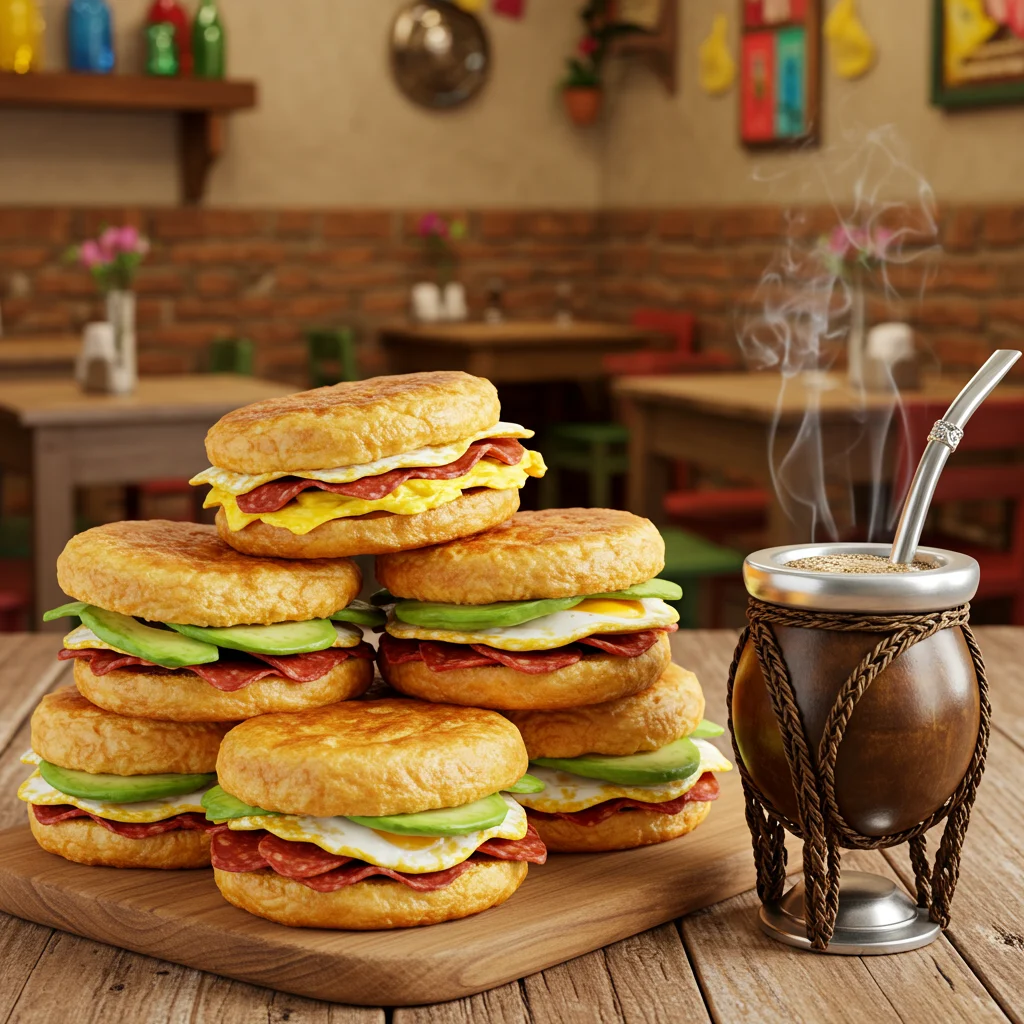
What Goes into a Typical Argentine Breakfast Sandwich?
The most common filling is ham and cheese, layered between slices of fresh baguette or croissant-style bread. Some variations include scrambled eggs or thinly sliced meats, but the emphasis remains on freshness and flavor.
The Role of Ham and Cheese
Ham and cheese are the preferred choice for many Argentines seeking a more substantial breakfast. The salty, creamy combination provides a satisfying contrast to the sweetness of pastries and pairs beautifully with coffee or mate.
Breakfast in Argentine Cafés
Cafés are an essential part of Argentina’s urban landscape, offering a welcoming space to enjoy breakfast at a leisurely pace. The ambiance is often lively yet comfortable, with attentive service and a menu of classic favorites.
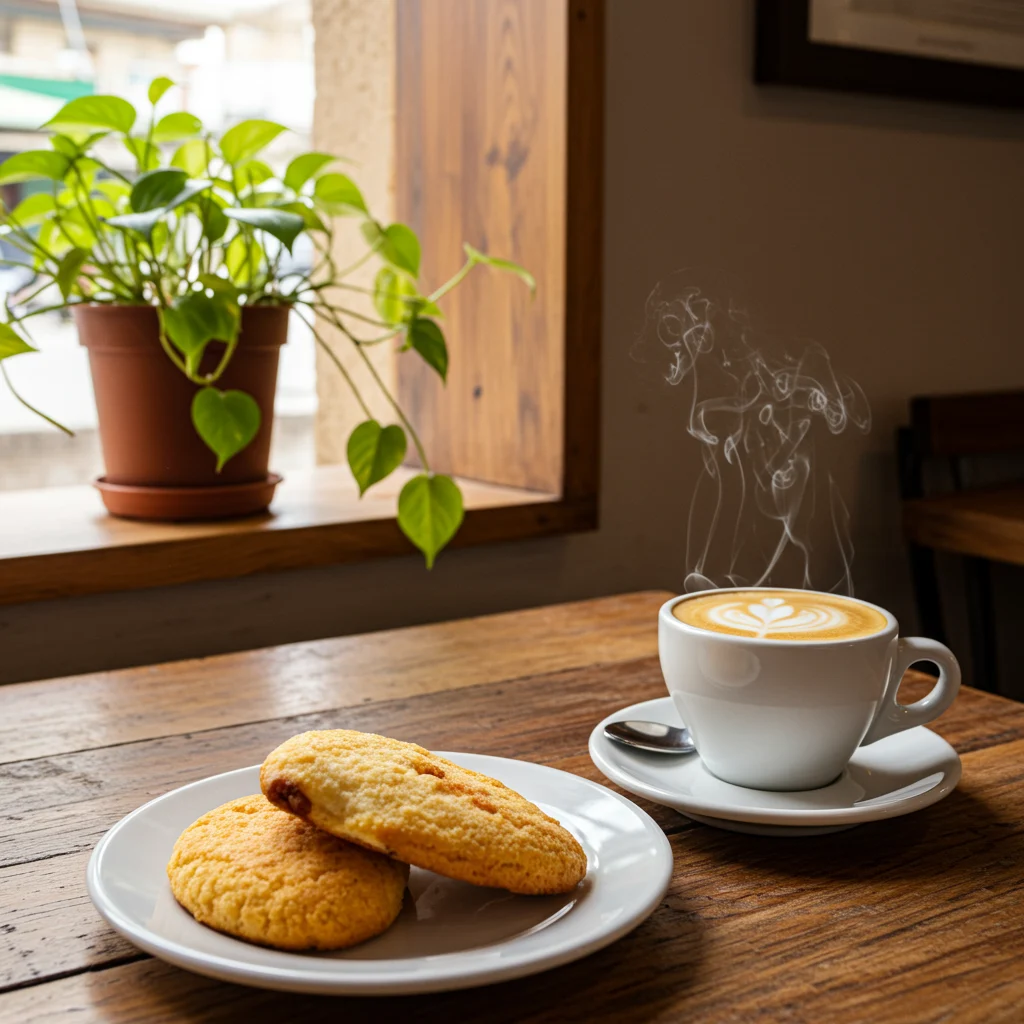
What to Expect When Ordering Breakfast at a Café?
Most cafés offer set breakfast combos, which typically include coffee or tea, a glass of orange juice, and a selection of pastries or toast. The service is unhurried, encouraging patrons to linger and enjoy the moment.
Popular Café Breakfast Combos
Popular combos include:
- Café con leche with medialunas
- Toast with butter and jam
- Freshly squeezed juice with bizcochos
These options cater to both traditionalists and those seeking something new, much like cafés found in other vibrant cities—if you’re interested in how café culture shapes city experiences, you might appreciate our post on Quito’s culture and viewpoints.
Breakfast for Kids: What Do Argentine Children Eat?
Children in Argentina often enjoy a breakfast similar to adults, though with a few adaptations. Sweet flavors and familiar textures are especially popular among younger eaters.

Traditional vs. Modern Choices for Kids
Traditional options include toast with butter and jam, medialunas, or bizcochos with hot chocolate. In recent years, cereals and yogurt have become more common, reflecting global trends while still honoring local tastes.
Gluten-Free and Vegan Breakfast Options in Argentina
Awareness of special dietary needs is growing in Argentina, with more bakeries and cafés offering gluten-free and vegan options. These alternatives allow everyone to enjoy the country’s breakfast traditions without compromise.
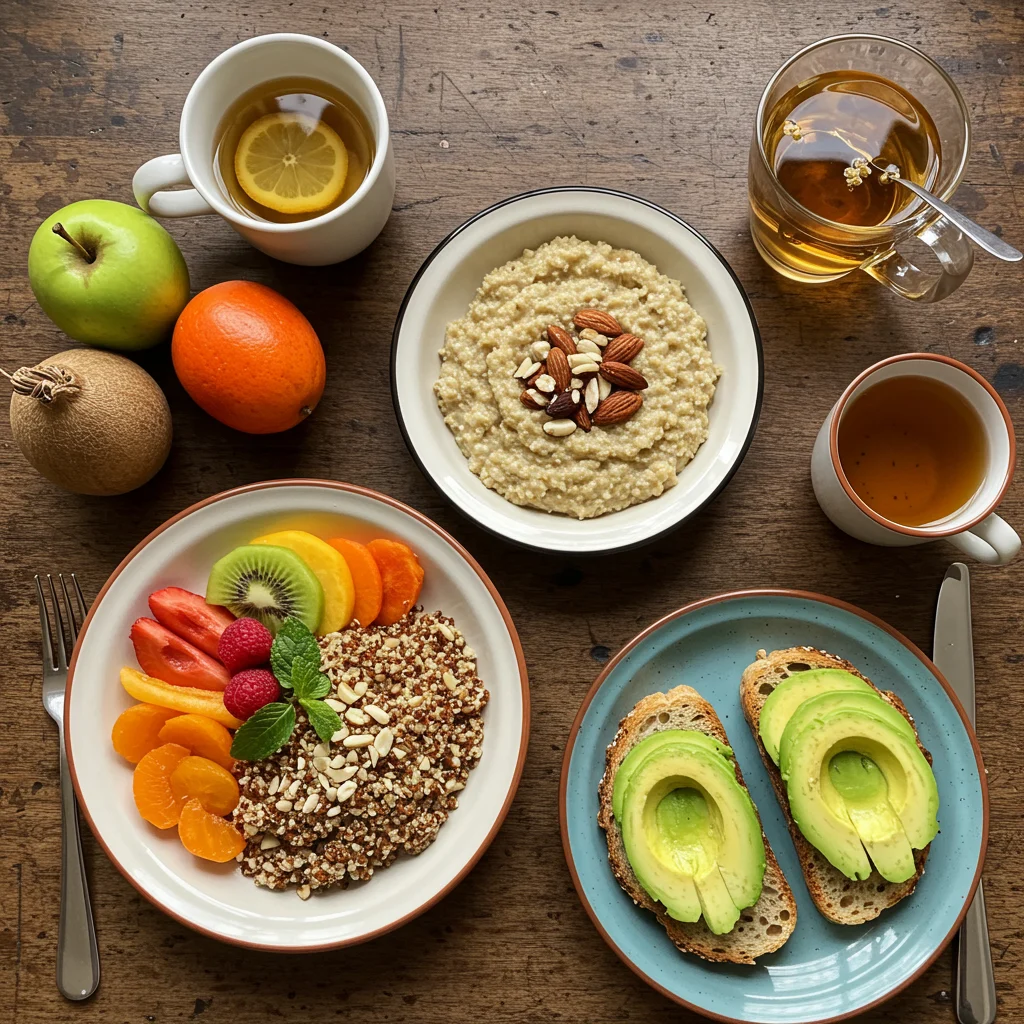
Where to Find Special Diet Breakfasts
Specialty shops in larger cities and health-focused bakeries are the best places to find gluten-free or vegan medialunas, breads, and pastries. Many supermarkets also stock packaged options, making it easier for visitors and locals alike to start their day with confidence.
Breakfast Traditions During Argentine Holidays
Holidays in Argentina bring special flavors to the breakfast table. Families gather to share traditional dishes, often prepared with extra care and attention to detail.
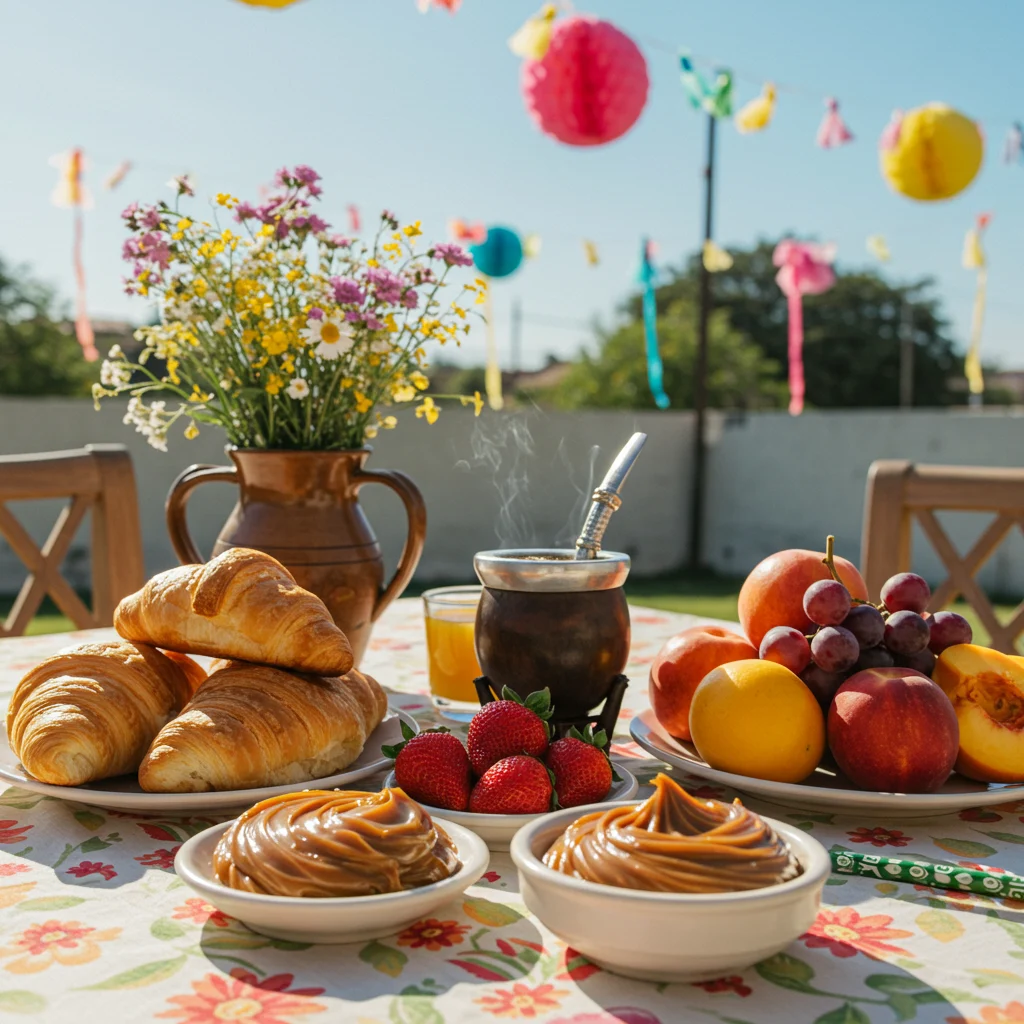
Special Dishes for National Celebrations
During national holidays, breakfast may include regional specialties, homemade pastries, or festive breads. These occasions are a time for reconnecting with heritage and celebrating togetherness. For those interested in how food enriches travel experiences during festive seasons, our guide to unmissable tourist spots in Cusco offers insights into culinary traditions abroad.
How to Recreate an Authentic Argentine Breakfast at Home
Bringing the flavors of Argentina into your own kitchen is both rewarding and accessible. With a few key ingredients and some simple techniques, anyone can prepare a memorable Argentine breakfast.
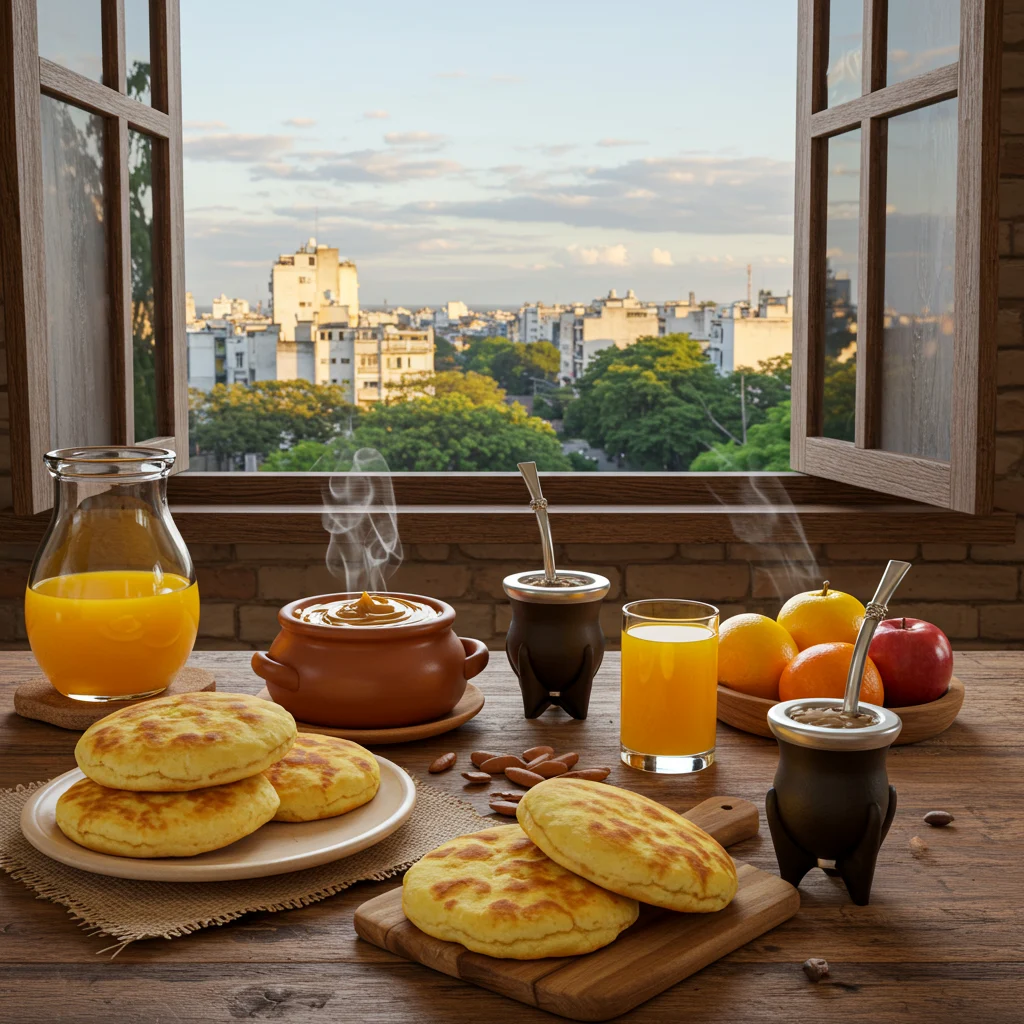
Essential Ingredients to Stock
To get started, stock up on:
- Wheat flour and cassava flour
- Butter, lard, and cheese
- Dulce de leche and fruit jams
- Fresh bread and pastries
- Yerba mate and quality coffee
Having these staples on hand will enable you to prepare a variety of classic dishes.
Step-by-Step Recipes for Popular Dishes
Try your hand at making medialunas, chipa, or tortas fritas by following traditional recipes. The process is often straightforward, and the results are deeply satisfying, filling your home with the comforting scents of Argentina.
Tips for Hosting an Argentine-Style Breakfast Gathering
Hosting an Argentine breakfast is a wonderful way to bring people together. The focus should be on warmth, hospitality, and the enjoyment of simple, delicious food.
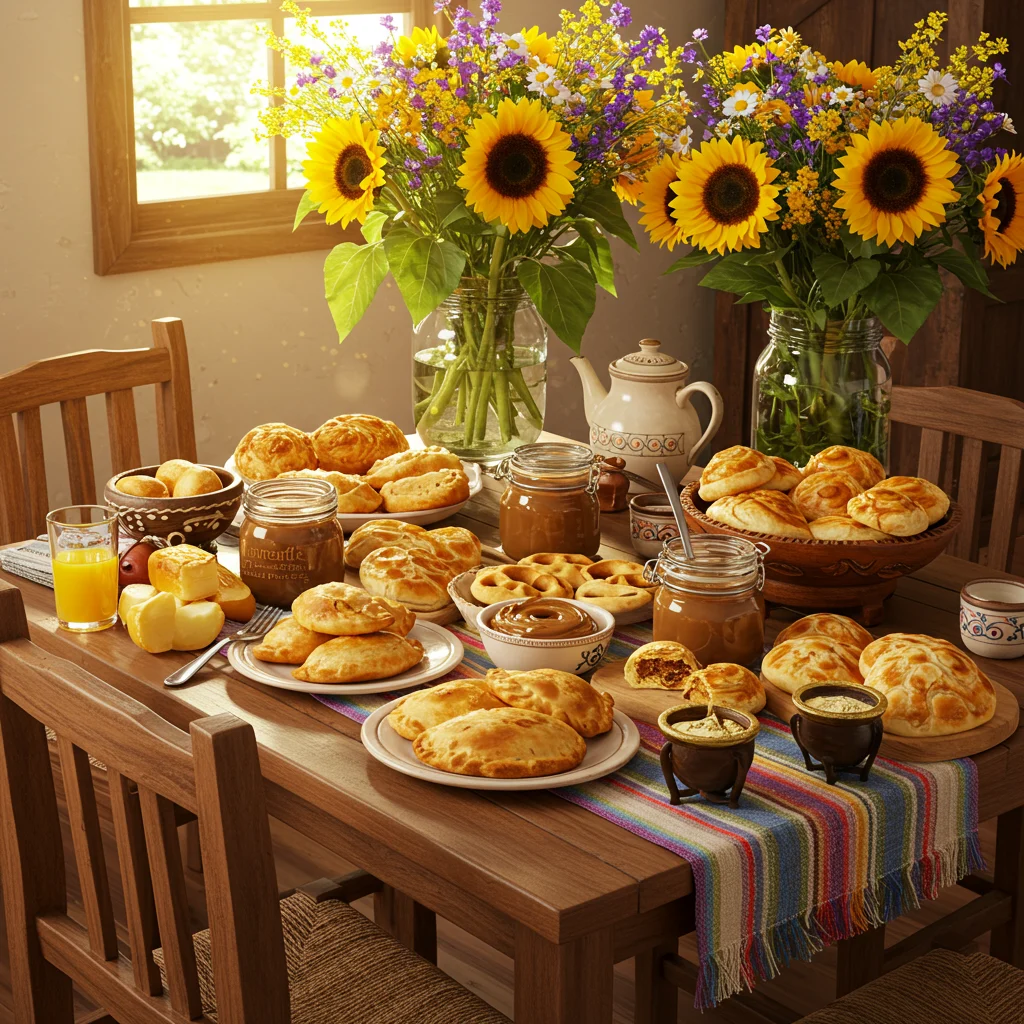
Setting the Table: What Should You Include?
Set the table with:
- A selection of pastries and breads
- Small dishes of jam, butter, and dulce de leche
- Fresh fruit and juice
- Mate, coffee, and hot chocolate
Encourage guests to serve themselves and linger over their meal, much like the relaxed gatherings enjoyed on an Andes range tour with food and wine.
Where to Find Argentine Breakfast Ingredients Abroad
For those living outside Argentina, sourcing authentic ingredients can be a challenge. Fortunately, many online shops and specialty stores carry the essentials needed to recreate Argentine breakfasts at home.
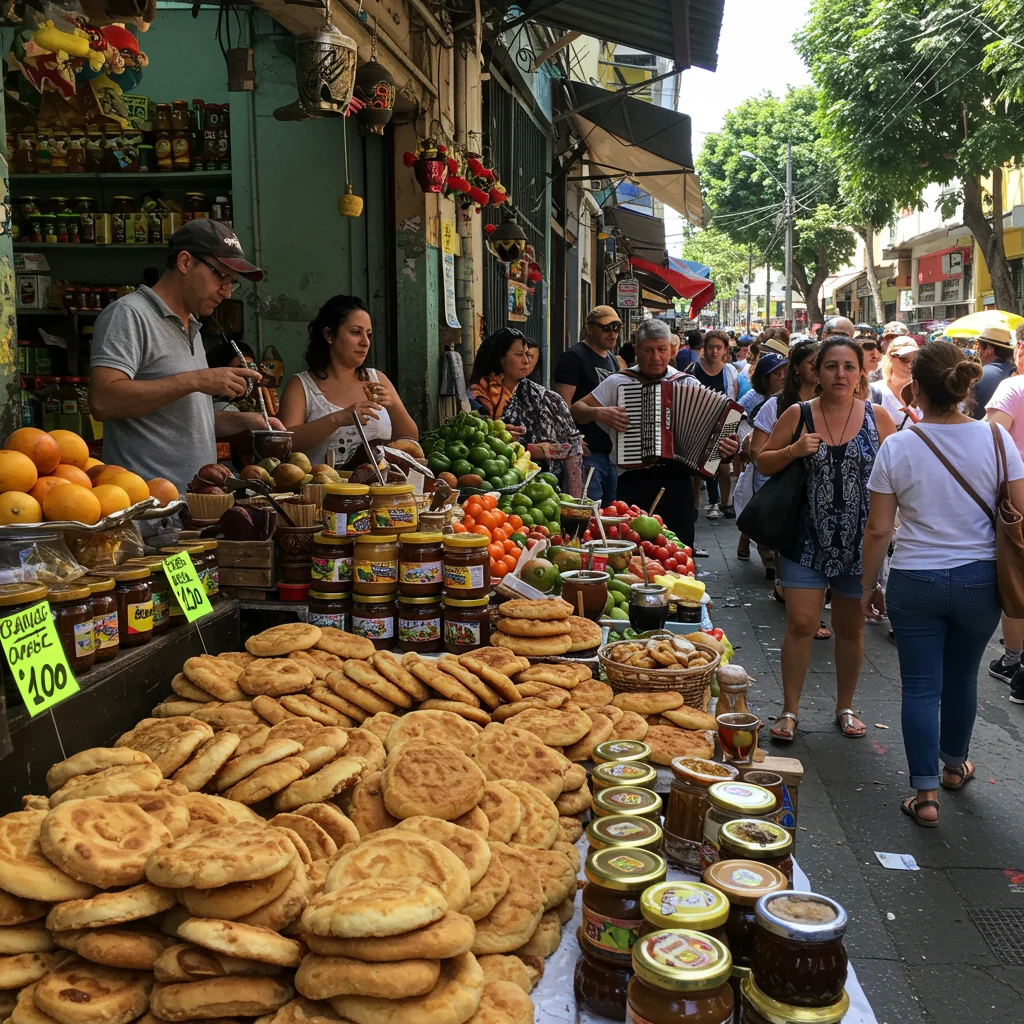
Online Shops and Specialty Stores
Look for Latin American grocery stores or online retailers specializing in Argentine products. Key items like yerba mate, dulce de leche, and cassava flour are increasingly available worldwide, making it easier to enjoy traditional flavors wherever you are.
Frequently Asked Questions About Argentine Breakfasts
Is Breakfast in Argentina Always Sweet?
While sweet pastries and spreads are the most common choices, savory options like ham and cheese sandwiches or chipa are also enjoyed, especially in certain regions. The balance between sweet and savory allows for variety, depending on personal preference.
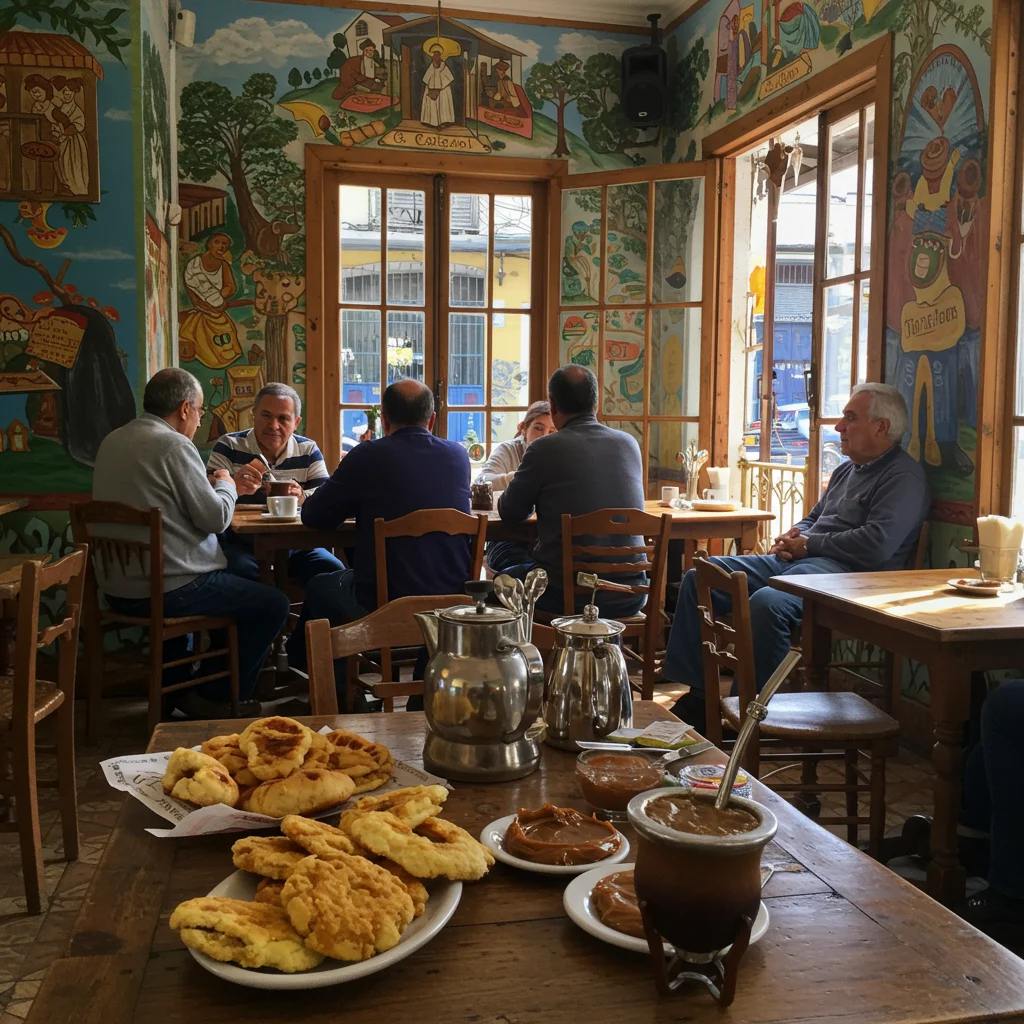
How Long Does a Typical Argentine Breakfast Last?
Breakfast in Argentina is usually brief on weekdays, often lasting just 10–20 minutes. However, on weekends or holidays, the meal can extend for an hour or more, transforming into a leisurely occasion shared with family and friends.
Conclusion: Why You Should Try Traditional Argentine Breakfast Dishes
Argentina’s breakfast traditions offer a delightful combination of sweet and savory flavors, inviting textures, and a warm sense of community. Whether you’re sampling medialunas at a local café or preparing chipa at home, these dishes reflect the country’s rich cultural heritage and passion for good food.
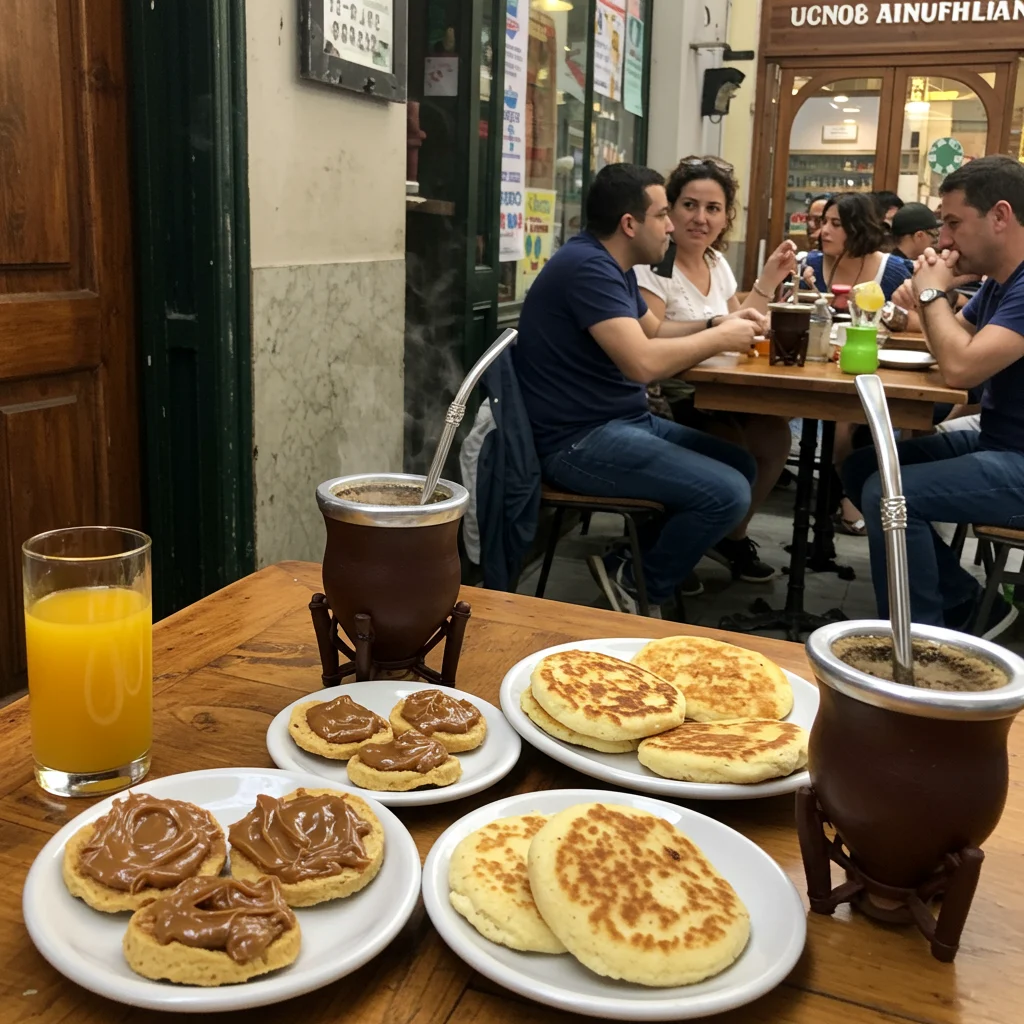
For those eager to bring a taste of Argentina into their own mornings, Zeosh provides inspiration and expert guidance to help you enjoy authentic experiences around the world. Learn more about culinary traditions and travel adventures at Zeosh and start your day the Argentine way.










